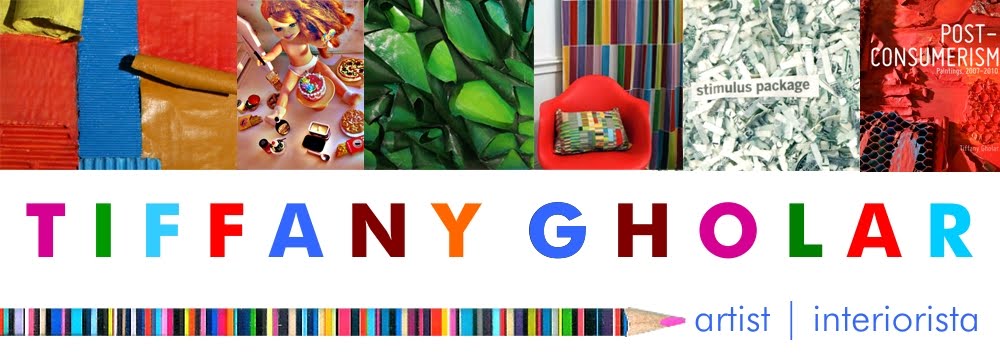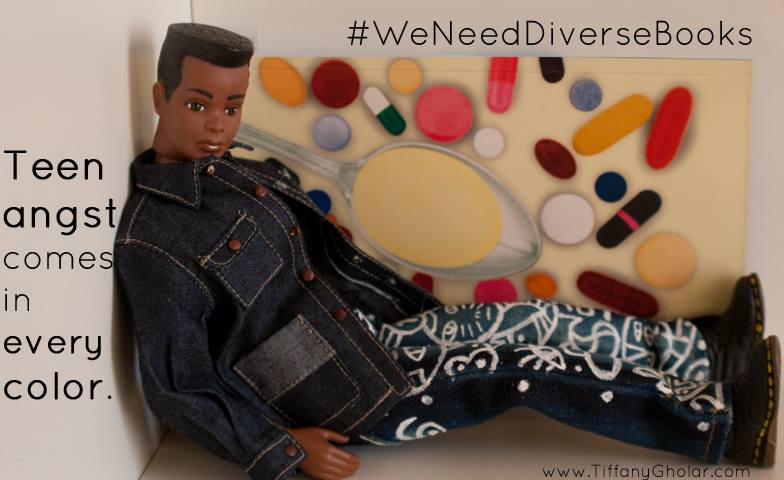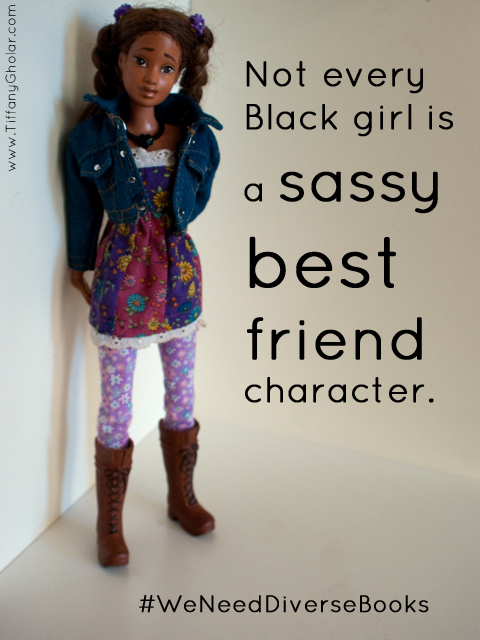August 4, 1993
...I just wish there were more books about African-American teenagers, but they’re all about the same ole thang--a boy or girl is such an Oreo at the beginning that their main goal is to BE WHITE. Then, they meet somebody who tells them about African-American history, then, they find themselves. Why is it always the same thing? And why is it always either set in Harlem in the 70’s or else in a poor southern state in the country?
Sometimes, I just wanna read a story about a kid who has lots of adventures and just happens to be Black, ya know? But naw. Of course not. It’s too hard to write a book like that, right? Would “Crazy Pill Syndrome” be much different of Steffanie and Devante were white? Not really.
But would Phillip Hall Likes Me, I Reckon Maybe be different without the main characters being Black? It couldn’t even be the same story! So don’t be surprised if, in my books, I don’t write about self-discovery and being dirt poor and having an Afro and bell-bottoms. I just wanna write about REAL LIFE.
I wrote this when I was 14 and had just begun writing my first novel.
Toni Morrison said, "If there's a book that
you want to read, but it hasn't been written yet, then you must write
it." When I was 14, I don't think I had read that quote yet, but that
was what I intended to do. I worked on my story for 9 years,
then abandoned it for 10 years. Now that I have re-written it and had
it rejected 68 times by literary agencies, I remember just how hard it
is to get published. I can't help but wonder if it would be easier if my
characters weren't Black. But there are some things I cannot
compromise. I set out to write a story that my 14-year-old self wanted
to read, and I am keeping that promise to myself. And I am glad to see
that there are other writers who are aware of the importance of
diversity in literature.
Earlier this week, much to my pleasant surprise, I discovered the #WeNeedDiverseBooks campaign. Spearheaded by a group of writers, it is a reaction to the selection of an all White panel of “luminaries of children’s literature” selected to speak at the upcoming Book Expo America BookCon conference, a major conference in the publishing industry. When the conference organizers didn't do anything to remedy the situation, #WeNeedDiverseBooks was launched.
Though inspired by very unfortunate circumstances, for me, it couldn't have happened at a better time. Though I try to stick to the subject of art on this blog, I have mentioned my novel on here before. Now that I have finished writing it, gotten feedback and had it edited, I am now in the process of trying to get it published. And though I self-published my art books, I am strongly opposed to doing that with my novel. It's my life's work. I don't want it doomed to a life of long-tail obscurity like all my other creative endeavors. I have a vision for it. I've written a screenplay version of it too, and I want to get it produced. I want it to be seen.
The road to getting published is typically a long a painful one. There is so much heartbreak and rejection. You have to be in a good place emotionally in order to deal with it. When I was in my early 20's and first went through this process, I wasn't in a good place. That's why I gave up on my novel. I found the rejection and critique process unbearable.
I'm a lot better now, but still the query letter submission process is a harrowing one. I finally broke down and cried last week after getting yet another rejection letter, this time from an agency that had at first said they wanted to represent me, then reneged on their offer. I was starting to wonder if it was all hopeless and pointless. I was getting tired of feeling invisible. I was getting tired of feeling like nobody cared. But despite my tears I pushed myself to find more agents, bringing the number of queries I've sent up to 150.
And then this week the #WeNeedDiverseBooks campaign came along. And suddenly I saw that I was not alone, that there are plenty of other writers from underrepresented and misrepresented groups who are struggling, too. And I felt like this girl:
And then, to my amazement, the movement went viral. People from all corners of the internet--writers, illustrators, parents, teachers, kids--contributed their opinions on the importance of having diverse characters in the books we read and write. Suddenly it became something that would not stay invisible and could not be ignored. Reading their posts on this Tumblr brought me to the verge of tears.
And when I read these posts, I was reminded again of what a privilege it is to be a writer, and the great responsibility that comes with it. It's a divine calling, having the power to create images and help to shape the way that young readers see themselves and their world.
I decided to make a contribution to the cause.
I also decided to make some memes using some images I had been keeping under wraps. My plan was to reveal them on here once I finally get a book deal, or at least an agent. But #WeNeedDiverseBooks made me change my mind. Here are my teenage protagonists, Janina (formerly Steffanie) and Devante.
Keeping up with the Twitter conversations around this topic has given me a lot to think about. What is a society really saying when it leaves certain people out of its popular stories? What happens when people are constantly misrepresented? What happens when people are defined by what they can't do, or are used sacrificially so that their deaths and suffering can inspire the main characters of the story? And then, when members of these groups stand up and demand equal and respectful representation in books, idiot trolls show up and say "It doesn't matter if a book is diverse. It just needs to be good." As if literary merit and diversity are mutually exclusive. As if we are looking for a handout. As if we don't already have our own literary traditions and luminaries and fiction MFAs. That, in particular is infuriating. I am tired of constantly being saddled with the requirement to work twice as hard and be twice as good just because I am Black. The perfectionism that results is nerve-wracking and creativity-killing. You want to know why I queried 150+ agencies? It's for that very reason.
Yes, I know what I am up against. But at least now I have found others like me who have fought the same battles and won the prize of publishing amazing books. That gives me hope. And it's been so enlightening to discover great titles I had never heard about before and fill my virtual library bookshelves to the max.
If you are looking for diverse books to read, follow the hashtag #DiversifyYourShelves for some great suggestions.
Earlier this week, much to my pleasant surprise, I discovered the #WeNeedDiverseBooks campaign. Spearheaded by a group of writers, it is a reaction to the selection of an all White panel of “luminaries of children’s literature” selected to speak at the upcoming Book Expo America BookCon conference, a major conference in the publishing industry. When the conference organizers didn't do anything to remedy the situation, #WeNeedDiverseBooks was launched.
Though inspired by very unfortunate circumstances, for me, it couldn't have happened at a better time. Though I try to stick to the subject of art on this blog, I have mentioned my novel on here before. Now that I have finished writing it, gotten feedback and had it edited, I am now in the process of trying to get it published. And though I self-published my art books, I am strongly opposed to doing that with my novel. It's my life's work. I don't want it doomed to a life of long-tail obscurity like all my other creative endeavors. I have a vision for it. I've written a screenplay version of it too, and I want to get it produced. I want it to be seen.
The road to getting published is typically a long a painful one. There is so much heartbreak and rejection. You have to be in a good place emotionally in order to deal with it. When I was in my early 20's and first went through this process, I wasn't in a good place. That's why I gave up on my novel. I found the rejection and critique process unbearable.
I'm a lot better now, but still the query letter submission process is a harrowing one. I finally broke down and cried last week after getting yet another rejection letter, this time from an agency that had at first said they wanted to represent me, then reneged on their offer. I was starting to wonder if it was all hopeless and pointless. I was getting tired of feeling invisible. I was getting tired of feeling like nobody cared. But despite my tears I pushed myself to find more agents, bringing the number of queries I've sent up to 150.
And then this week the #WeNeedDiverseBooks campaign came along. And suddenly I saw that I was not alone, that there are plenty of other writers from underrepresented and misrepresented groups who are struggling, too. And I felt like this girl:
And then, to my amazement, the movement went viral. People from all corners of the internet--writers, illustrators, parents, teachers, kids--contributed their opinions on the importance of having diverse characters in the books we read and write. Suddenly it became something that would not stay invisible and could not be ignored. Reading their posts on this Tumblr brought me to the verge of tears.
And when I read these posts, I was reminded again of what a privilege it is to be a writer, and the great responsibility that comes with it. It's a divine calling, having the power to create images and help to shape the way that young readers see themselves and their world.
I decided to make a contribution to the cause.
I also decided to make some memes using some images I had been keeping under wraps. My plan was to reveal them on here once I finally get a book deal, or at least an agent. But #WeNeedDiverseBooks made me change my mind. Here are my teenage protagonists, Janina (formerly Steffanie) and Devante.
Keeping up with the Twitter conversations around this topic has given me a lot to think about. What is a society really saying when it leaves certain people out of its popular stories? What happens when people are constantly misrepresented? What happens when people are defined by what they can't do, or are used sacrificially so that their deaths and suffering can inspire the main characters of the story? And then, when members of these groups stand up and demand equal and respectful representation in books, idiot trolls show up and say "It doesn't matter if a book is diverse. It just needs to be good." As if literary merit and diversity are mutually exclusive. As if we are looking for a handout. As if we don't already have our own literary traditions and luminaries and fiction MFAs. That, in particular is infuriating. I am tired of constantly being saddled with the requirement to work twice as hard and be twice as good just because I am Black. The perfectionism that results is nerve-wracking and creativity-killing. You want to know why I queried 150+ agencies? It's for that very reason.
Yes, I know what I am up against. But at least now I have found others like me who have fought the same battles and won the prize of publishing amazing books. That gives me hope. And it's been so enlightening to discover great titles I had never heard about before and fill my virtual library bookshelves to the max.
If you are looking for diverse books to read, follow the hashtag #DiversifyYourShelves for some great suggestions.


















I think one of the most poignant things here for me is - we need more diverse books because understanding others is the first step to ending discrimination. Too true! And having a Black/Asian/Indian actor playing a lead in a film should be the norm, not the exception. It's about time we had a genuine reflection of the diversity of people living on this planet in our media, literature and entertainment. Good luck with the publication of your novel. I wish you every success =0)
ReplyDeleteThanks so much, Pepper! I think the point the campaign made that resonates with me the most is that books should be both mirrors and windows, allowing readers to see characters that are like themselves and characters that are not. You learn so much more that way.
DeleteThis is a lovely post, Tiffany. Thank you for writing it. <3
ReplyDeleteThanks, Kaye!
ReplyDelete